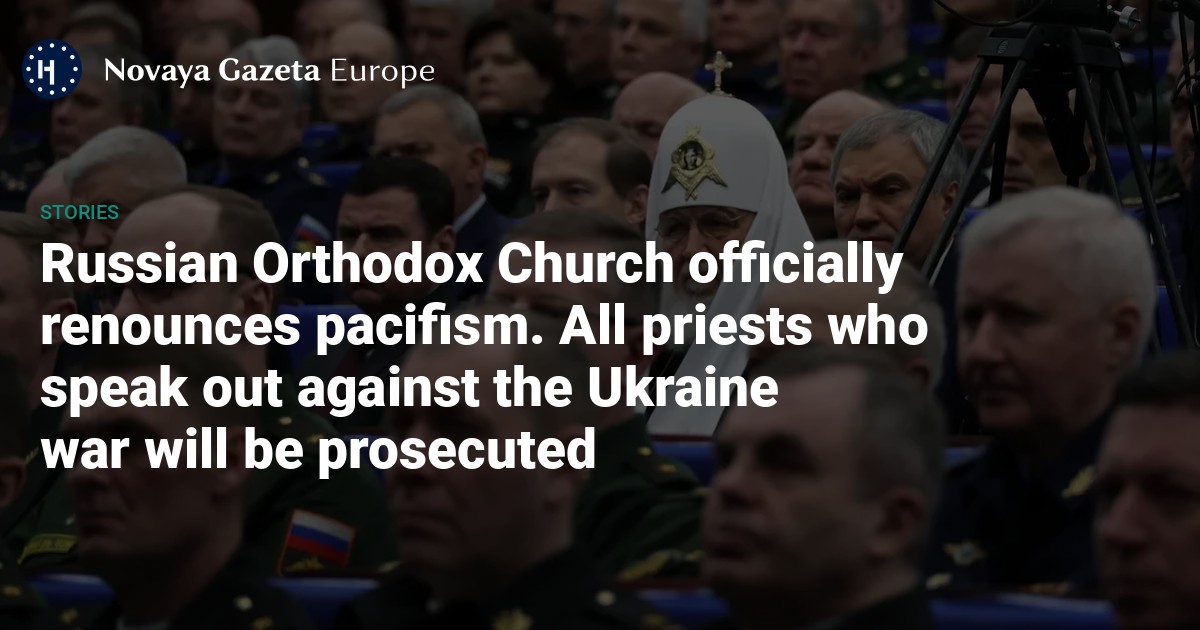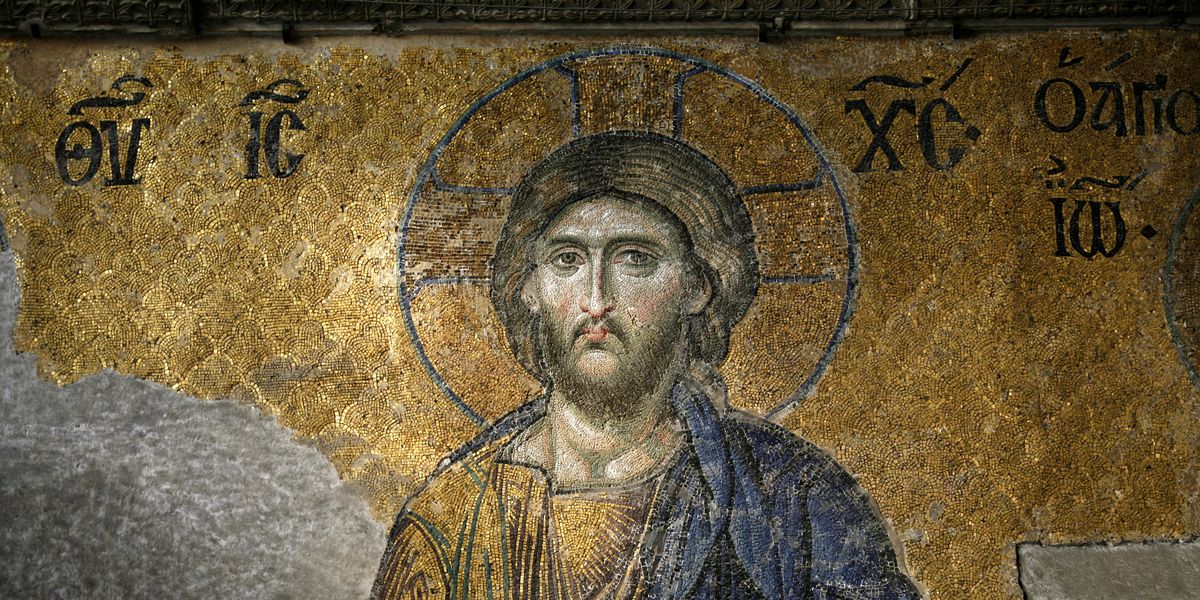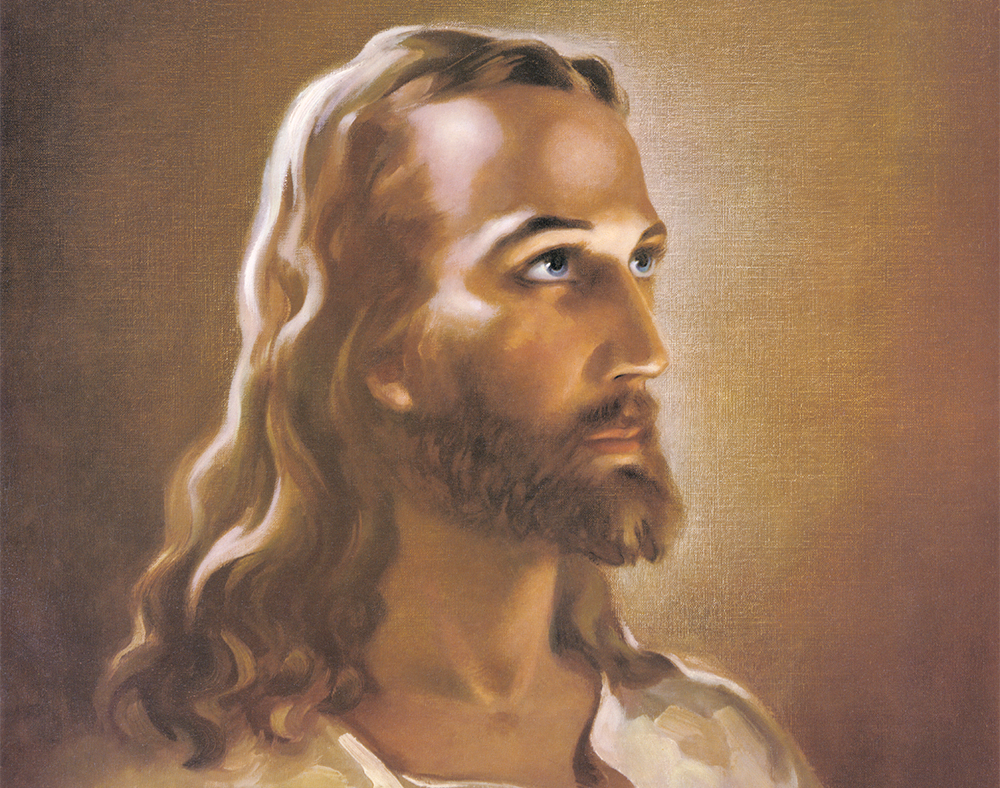andyrabbit
Senior Member
- Joined
- 9 Mar 2022
- Messages
- 2,119
- Reaction score
- 2,307

Russian Orthodox Church officially renounces pacifism
All priests who speak out against the Ukraine war will be prosecuted
You must be logged in to view threads on this forum. Please sign up by clicking here to continue viewing content on the mighty South Sydney Rabbitohs.

Christians do help the poor but you won't hear about it because The Lord says it must be kept quiet so as not to get the adulation of the public, also some people that say they are Christian are not.If Jesus was around now he'd definitely be the wokest of all. He was quite radical but his teachings have been twisted into Right Wing conservatism, which he distinctly was not. What it has morphed into (particularly the evangelical Hillsong type), is just downright nasty.
I have not met many modern Christians that actually help the poor, don't harbour wealth or possessions, and do good in the community. Apparently having some care and empathy for your fellow human is unChristian these days. God help us. My grandfather, a minister, used to open his house to the poor, gave away possessions e.t.c. Where are those types now? It is just about social control these days. Father Bob was about the only one I can think of who represented true Christian values. A lot of Christianity these days reminds me of the Taliban, sadly. I'm sure there are true Christians out there, but not met any in decades.
The Bible tells us that marriage is to be between a man and a woman. Same sex relationships are sinful, abortion is sinful and sex outside of marriage is sinful.Among the letters to a Florida newspaper. A few crackpots for sure but this one I found interesting.
Jesus would be labeled woke, too
Why are Gov. DeSantis and his Republican cohorts impinging on the First Amendment rights of U.S. Christians, namely, “prohibiting the free exercise” of religion?
Christians are required to follow the teachings of Jesus who, according to the New Testament, demonstrated many teaching examples of inclusion and equality, and instructed his followers to love their neighbors, i.e., their fellow humans. These days Jesus would be labeled as “woke” because of his concern for others, and he would be derided by our Florida leaders and their followers.

Jesus would be called woke these days, too: Letters to the Editor, April 16, 2023
Readers share their views on everything from guns to Gov. DeSantis to service dog lawswww.floridatoday.com
I didn't say none help the poor, if you read what I actually wrote. These people are a tiny minority of Christians. The Father Bob foundation is a great example of how things should be.Christians do help the poor but you won't hear about it because The Lord says it must be kept quiet so as not to get the adulation of the public, also some people that say they are Christian are not.
.
This is a quote from an article:The Bible tells us that marriage is to be between a man and a woman. Same sex relationships are sinful, abortion is sinful and sex outside of marriage is sinful.
Jesus recognised that they chose to interpret Scripture in a way that prevented it from being understood in non-traditional ways. Thus they limited God’s power to be different from traditional understandings of him. Jesus was saying God refused to be the exclusive property of the Sadducees. The ordinary people who followed Jesus understood that he represented a different understanding of God.Is this not the reason you are mistaken, that you do not understand the Scriptures or the power of God?
Paul built his theological argument on the Jew-Greek distinction, but then extended it to the slave-free distinction and the male-female distinction. Christians – no matter which church they belong to – should follow Paul and extend it to the heterosexual-homosexual distinction.There is no longer Jew or Greek, there is no longer slave or free, there is no longer male and female; for all of you are one in Christ Jesus.

 theconversation.com
theconversation.com
This is a quote from an article:
As a biblical scholar, I would suggest that church leaders who use their cultures and theology to exclude homosexuals don’t read Scripture carefully. Instead, they allow their patriarchal fears to distort it, seeking to find in the Bible proof-texts that will support attitudes of exclusion.
There are several instances in the Bible that underscore my point.
Love of God and neighbour
Mark’s Gospel, found in the New Testament, records that Jesus entered the Jerusalem temple on three occasions. First, he visited briefly, and “looked around at everything” (11:11).
On the second visit he acted, driving “out those who were buying and selling in the temple, and overturned the tables of the money changers and the seats of those who were selling doves” (11:15). Jesus specifically targeted those who exploited the poorest of the people coming to the temple.
On his third visit, Jesus spent considerable time in the temple itself (11:27-13:2). He met the full array of temple leadership, including chief priests, teachers of the law and elders. Each of these leadership sectors used their interpretation of Scripture to exclude rather than to include.
The “ordinary people” (11:32 and 12:12) recognised that Jesus proclaimed a gospel of inclusion. They eagerly embraced him as he walked through the temple.
In Mark 12:24, Jesus addresses the Sadducees, who were the traditional high priests of ancient Israel and played an important role in the temple. Among those who confronted Jesus, they represented the group that held to a conservative theological position and used their interpretation of the Scripture to exclude. Jesus said to them:
Jesus recognised that they chose to interpret Scripture in a way that prevented it from being understood in non-traditional ways. Thus they limited God’s power to be different from traditional understandings of him. Jesus was saying God refused to be the exclusive property of the Sadducees. The ordinary people who followed Jesus understood that he represented a different understanding of God.
This message of inclusion becomes even clearer when Jesus is later confronted by a single scribe (12:28). In answer to the scribe’s question on the most important laws, Jesus summarised the theological ethic of his gospel: love of God and love of neighbour (12:29-31).
Inclusion, not exclusion
Those who would exclude homosexuals from God’s kingdom choose to ignore Jesus, turning instead to the Old Testament – most particularly to Genesis 19, the destruction of the cities of Sodom and Gomorrah. Their interpretation of the story is that it is about homosexuality. It isn’t. It relates to hospitality.
The story begins in Genesis 18 when three visitors (God and two angels, appearing as “men”) came before Abraham, a Hebrew patriarch. What did Abraham and his wife Sarah do? They offered hospitality.
The two angels then left Abraham and the Lord and travelled into Sodom (19:1) where they met Lot, Abraham’s nephew. What did Lot do? He offered hospitality. The two incidents of hospitality are explained in exactly the same language.
The “men of Sodom” (19:4), as the Bible describes them, didn’t offer the same hospitality to these angels in disguise. Instead they sought to humiliate them (and Lot (19:9)) by threatening to rape them. We know they were heterosexual because Lot, in attempting to protect himself and his guests, offered his virgin daughters to them (19:8).
Heterosexual rape of men by men is a common act of humiliation. This is an extreme form of inhospitality. The story contrasts extreme hospitality (Abraham and Lot) with the extreme inhospitality of the men of Sodom. It is a story of inclusion, not exclusion. Abraham and Lot included the strangers; the men of Sodom excluded them.
Clothed in Christ
When confronted by the inclusive gospel of Jesus and a careful reading of the story of Sodom as one about hospitality, those who disavow Pope Francis’s approach will likely jump to other Scriptures. Why? Because they have a patriarchal agenda and are looking for any Scripture that might support their position.
But the other Scriptures they use also require careful reading. Leviticus 18:22 and 20:13, for example, are not about “homosexuality” as we now understand it – as the caring, loving and sexual relationship between people of the same sex. These texts are about relationships that cross boundaries of purity (between clean and unclean) and ethnicity (Israelite and Canaanite).
In Galatians 3:28 in the New Testament, Paul the apostle yearns for a Christian community where:
Paul built his theological argument on the Jew-Greek distinction, but then extended it to the slave-free distinction and the male-female distinction. Christians – no matter which church they belong to – should follow Paul and extend it to the heterosexual-homosexual distinction.
We are all “clothed in Christ” (3:27): God only sees Christ, not our different sexualities.

New chatter on dark matter
Dark matter has worked its way back into the news in the last few days with the completion of a detection experiment in a tunnel deep under the Italian Alps. Researchers from Columbia University used a…theconversation.com

I can’t really comment on other branches of Christianity, but as a Catholic, I was always taught that Jesus is for everyone. The sick and disabled, the healthy, the rich and the poor, black and white etc. Never did Jesus turn away anyone. Didn’t matter if it was a prostitute, a person with lepracy, a blind man, a tax collector, a criminal, or people from another race.This is a quote from an article:
As a biblical scholar, I would suggest that church leaders who use their cultures and theology to exclude homosexuals don’t read Scripture carefully. Instead, they allow their patriarchal fears to distort it, seeking to find in the Bible proof-texts that will support attitudes of exclusion.
There are several instances in the Bible that underscore my point.
Love of God and neighbour
Mark’s Gospel, found in the New Testament, records that Jesus entered the Jerusalem temple on three occasions. First, he visited briefly, and “looked around at everything” (11:11).
On the second visit he acted, driving “out those who were buying and selling in the temple, and overturned the tables of the money changers and the seats of those who were selling doves” (11:15). Jesus specifically targeted those who exploited the poorest of the people coming to the temple.
On his third visit, Jesus spent considerable time in the temple itself (11:27-13:2). He met the full array of temple leadership, including chief priests, teachers of the law and elders. Each of these leadership sectors used their interpretation of Scripture to exclude rather than to include.
The “ordinary people” (11:32 and 12:12) recognised that Jesus proclaimed a gospel of inclusion. They eagerly embraced him as he walked through the temple.
In Mark 12:24, Jesus addresses the Sadducees, who were the traditional high priests of ancient Israel and played an important role in the temple. Among those who confronted Jesus, they represented the group that held to a conservative theological position and used their interpretation of the Scripture to exclude. Jesus said to them:
Jesus recognised that they chose to interpret Scripture in a way that prevented it from being understood in non-traditional ways. Thus they limited God’s power to be different from traditional understandings of him. Jesus was saying God refused to be the exclusive property of the Sadducees. The ordinary people who followed Jesus understood that he represented a different understanding of God.
This message of inclusion becomes even clearer when Jesus is later confronted by a single scribe (12:28). In answer to the scribe’s question on the most important laws, Jesus summarised the theological ethic of his gospel: love of God and love of neighbour (12:29-31).
Inclusion, not exclusion
Those who would exclude homosexuals from God’s kingdom choose to ignore Jesus, turning instead to the Old Testament – most particularly to Genesis 19, the destruction of the cities of Sodom and Gomorrah. Their interpretation of the story is that it is about homosexuality. It isn’t. It relates to hospitality.
The story begins in Genesis 18 when three visitors (God and two angels, appearing as “men”) came before Abraham, a Hebrew patriarch. What did Abraham and his wife Sarah do? They offered hospitality.
The two angels then left Abraham and the Lord and travelled into Sodom (19:1) where they met Lot, Abraham’s nephew. What did Lot do? He offered hospitality. The two incidents of hospitality are explained in exactly the same language.
The “men of Sodom” (19:4), as the Bible describes them, didn’t offer the same hospitality to these angels in disguise. Instead they sought to humiliate them (and Lot (19:9)) by threatening to rape them. We know they were heterosexual because Lot, in attempting to protect himself and his guests, offered his virgin daughters to them (19:8).
Heterosexual rape of men by men is a common act of humiliation. This is an extreme form of inhospitality. The story contrasts extreme hospitality (Abraham and Lot) with the extreme inhospitality of the men of Sodom. It is a story of inclusion, not exclusion. Abraham and Lot included the strangers; the men of Sodom excluded them.
Clothed in Christ
When confronted by the inclusive gospel of Jesus and a careful reading of the story of Sodom as one about hospitality, those who disavow Pope Francis’s approach will likely jump to other Scriptures. Why? Because they have a patriarchal agenda and are looking for any Scripture that might support their position.
But the other Scriptures they use also require careful reading. Leviticus 18:22 and 20:13, for example, are not about “homosexuality” as we now understand it – as the caring, loving and sexual relationship between people of the same sex. These texts are about relationships that cross boundaries of purity (between clean and unclean) and ethnicity (Israelite and Canaanite).
In Galatians 3:28 in the New Testament, Paul the apostle yearns for a Christian community where:
Paul built his theological argument on the Jew-Greek distinction, but then extended it to the slave-free distinction and the male-female distinction. Christians – no matter which church they belong to – should follow Paul and extend it to the heterosexual-homosexual distinction.
We are all “clothed in Christ” (3:27): God only sees Christ, not our different sexualities.

New chatter on dark matter
Dark matter has worked its way back into the news in the last few days with the completion of a detection experiment in a tunnel deep under the Italian Alps. Researchers from Columbia University used a…theconversation.com
Well said. People may mistake my views as anti-Christian. I am not, but I am anti hypocrisy. The Bible unfortunately is open to many interpretations, and there are a lot of conflicting writings, not to mention the differences between the Old and New Testaments.I can’t really comment on other branches of Christianity, but as a Catholic, I was always taught that Jesus is for everyone. The sick and disabled, the healthy, the rich and the poor, black and white etc. Never did Jesus turn away anyone. Didn’t matter if it was a prostitute, a person with lepracy, a blind man, a tax collector, a criminal, or people from another race.
Jesus lived his life as an example of how humanity should live. Jesus taught us to Love one another. Love God. He taught us never to judge others. Even those who crucified him, Jesus prayed for their forgiveness whilst dying on his cross.
Over the years I have formed my own views. I think that the branches of Christianity, various churches and religions have put their own spin on things to suit their agendas or views. Including my own. A bastardisation of Jesus, to use his name, to exclude groups/people from different ways of life or beliefs.
I believe the teachings of Jesus and the example for humanity which was his life is a seperate thing to the church or religious views.
Put simply, these things are from man. Man can be corrupted.





You make bullshit sound reasoable,Vladimir Lenin a committed Socialist upon gaining control in Russia issued a peace decree appealing to all the warring nations in ww1 to cease fire immediately and return their borders to 1914 status.
